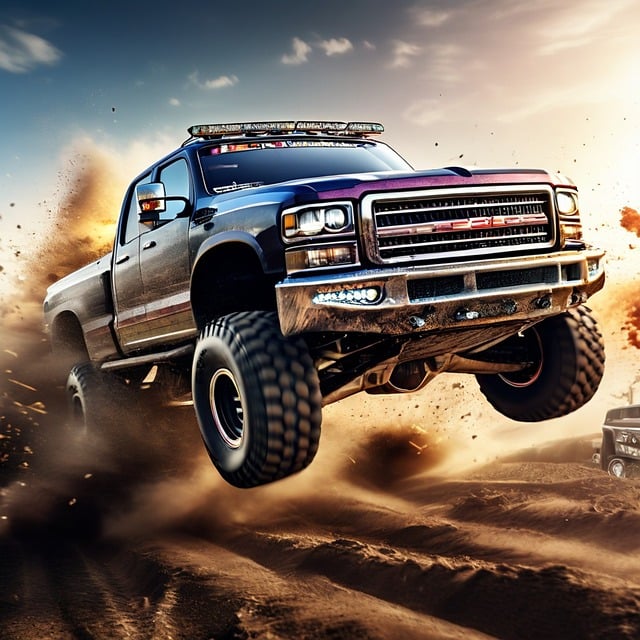Towing chains are essential for RGV trucks, offering force transmission and safety in diverse conditions. Choosing the right chain is key to optimizing rgvtruckperformance. Consider chain type (steel vs synthetic), length, weight capacity, and manufacturer specs to match vehicle capabilities, preventing overloading and ensuring a safe, seamless towing experience focused on rgvtruckperformance.
Towing chains play a pivotal role in enhancing the performance and safety of RGV trucks, especially during heavy-duty towing operations. This article delves into the intricate world of these essential components, exploring their diverse types and the critical factors to consider for optimal RGV truck performance. From understanding the mechanics to selecting the perfect fit, this guide promises to equip you with the knowledge needed to maximize efficiency on the road.
- Understanding Towing Chains: Their Role and Types in rgvtruckperformance
- Choosing the Right Towing Chain: Factors to Consider for Optimal Performance in rgvtruckperformance
Understanding Towing Chains: Their Role and Types in rgvtruckperformance

Towing chains play a pivotal role in enhancing the performance and capabilities of RGV (Rigid-body Vehicle) trucks, particularly in challenging towing scenarios. These chains are essential components that facilitate the connection between the truck and the trailer or the vehicle being towed. Their primary function is to transmit the pulling force efficiently, ensuring the safe and stable transport of heavy loads.
In terms of types, towing chains come in various designs suited for different applications. From basic metal links to specialized materials like steel or even synthetic fibers, each type offers unique advantages. For instance, steel chains excel in their strength and durability, making them ideal for heavy-duty tasks. Conversely, synthetic chains may provide superior flexibility and corrosion resistance, which is beneficial in diverse weather conditions. Understanding these variations allows RGV truck operators to choose the most suitable chain for specific jobs, ultimately optimizing performance and ensuring a seamless rgvtruckperformance experience.
Choosing the Right Towing Chain: Factors to Consider for Optimal Performance in rgvtruckperformance

When selecting towing chains for your vehicle, several factors in rgvtruckperformance come into play to ensure optimal efficiency and safety. One of the primary considerations is the chain’s material composition. Look for robust, high-quality steel links that can withstand intense stress and corrosion, especially when hauling heavy loads over long distances. The strength and durability of these chains directly impact the overall performance and longevity of your towing system.
Additionally, the right length and weight capacity are crucial. Ensure the chain is appropriately sized for your vehicle and the load you plan to tow. A well-fitted, suitable length prevents sloppiness that could lead to handling issues or even accidents. Moreover, check the manufacturer’s specifications to confirm it aligns with your truck’s capabilities to avoid overloading and potential damage. In terms of rgvtruckperformance, these considerations are key to a seamless towing experience.
Towing chains are an essential component of rgvtruckperformance, playing a crucial role in enhancing truck capability and safety. When choosing the right chain, consider factors like load capacity, material quality, and compatibility with your vehicle for optimal performance in rgvtruckperformance. Investing in high-quality towing chains can significantly improve your trucking experience and ensure efficient, reliable hauling.
